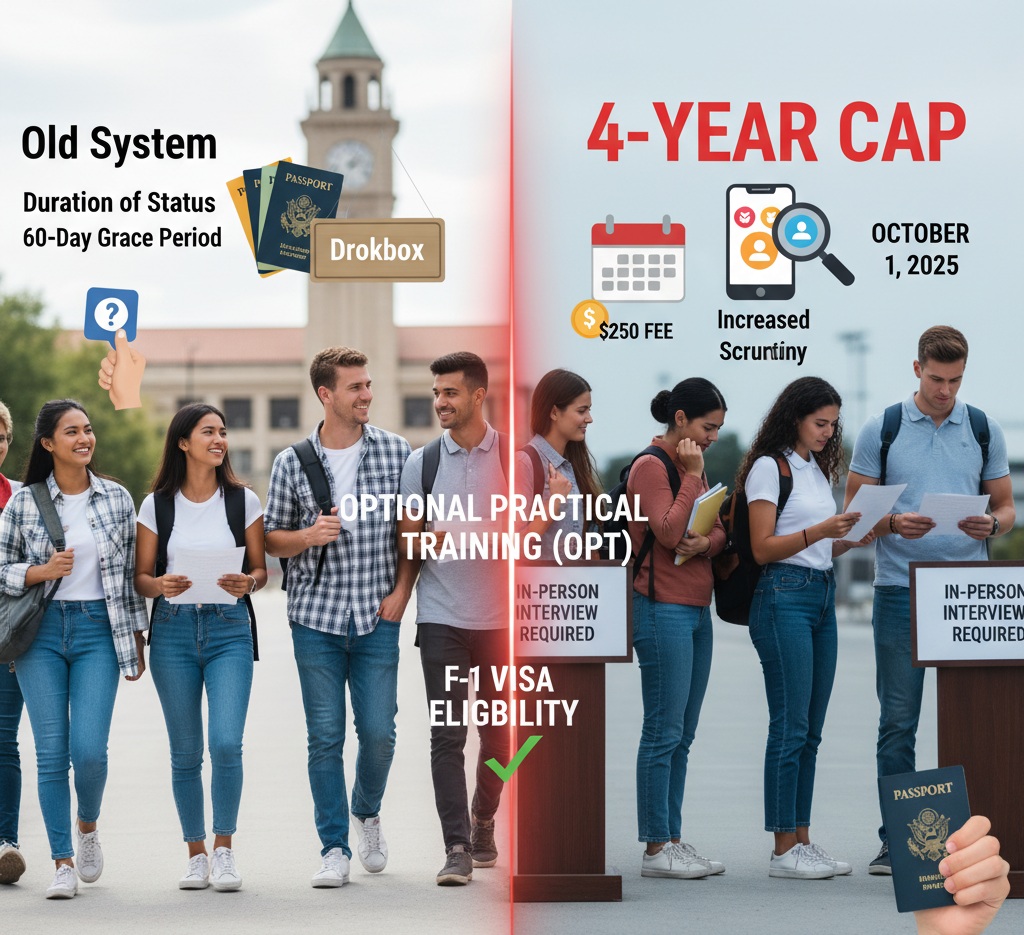The biggest proposed change is the shift from “duration of status” to fixed-term visas, typically capped at four years. This means you can no longer stay in the US indefinitely as long as you’re enrolled in school. Instead, you’ll be admitted for a specific period.
If your program is longer than four years, or if you need more time to finish your studies, you will have to apply for an extension with U.S. Citizenship and Immigration Services (USCIS). This process will come with increased scrutiny, and previous approvals will not guarantee a new one.
In addition, the grace period for F-1 students after completing their studies will be reduced from 60 days to just 30 days. The new rules may also make it more difficult for students, particularly undergraduates in their first year, to change their major or program of study.
New Requirements for Visa Applications
The visa application process itself is also undergoing a major overhaul, with several new requirements already in effect.
- New Visa Integrity Fee: Starting October 1, 2025, most non-immigrant visa applicants, including students, must pay a new $250 Visa Integrity Fee.
- Social Media Screening: Visa applicants for academic and exchange visas are now required to disclose their social media usernames from the past five years. Consular officers are authorized to review posts and activity as part of the vetting process.
- Reduced Interview Waivers: The Interview Waiver Program, often called the “Dropbox” process, is being cut back. As of September 2, 2025, more applicants—even those renewing their visas—will be required to appear for an in-person interview at a U.S. Embassy or Consulate.
- Passport Collection Changes: Since August 1, 2025, third-party passport pickups have been discontinued. You must now collect your passport in person or arrange for a paid delivery service to your home or office.
For Undergraduate Students: The proposed rule would prohibit undergraduate F-1 visa holders from changing their major, program, or education level during their first year of study in the U.S. There may be limited exceptions, such as in cases of a school closure or a natural disaster.
For Graduate Students: The restrictions are even tighter for graduate students. The proposed rule would prohibit a graduate-level F-1 student from changing their program or field of study at any point after being admitted. This is based on the argument that graduate students should be more committed to a specific academic path.
For All F-1 Students: Once a student completes a program at a certain academic level (e.g., a Bachelor’s degree), they would not be eligible to pursue another program at the same or a lower level (e.g., another Bachelor’s or an Associate’s degree) on the same F-1 visa. This aims to prevent students from staying in the U.S. indefinitely by enrolling in multiple programs at the same level.
What’s Staying the Same?
While these changes are significant, some key aspects of the student visa system remain in place. There are currently no explicit changes to the Optional Practical Training (OPT) program. However, the new four-year visa cap could still impact students in longer programs who were planning to use OPT after graduation.
The core requirements for an F-1 visa, such as having a valid I-20 form from a SEVP-certified institution, demonstrating academic proficiency, and proving sufficient financial resources, are also still in effect.
These proposed and enacted changes are aimed at giving immigration officials more opportunities to review whether students are complying with visa requirements. For international students, this new landscape means being more proactive and prepared for a more rigorous and less flexible system.


